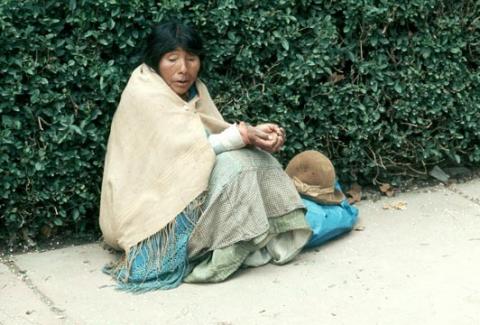
Fr. Paul Masson, MM, describes preparations for Christmas in his community in Bolivia.
In Bolivia, we are living a time of uncertainty, a time of division between brothers and sisters, people of different racial backgrounds, the people of the city and those of the rural areas. It is a time marked by anxiety and the fear of more violence caused by political unrest. This situation is not a lot different than the time of the betrothal of Joseph and Mary.
The prophets of the people of Israel announced the coming of the Son of God, the Messiah, the renewal of the relationship between God and the people of Israel, based on the unconditional love of God. Mary was betrothed to Joseph, but before living together, she was found with child through the Holy Spirit. Matthew in his Gospel speaks of Joseph’s decision to divorce Mary, but he is overcome by the heavenly command to take her into his home and accept the child as his own. The Angel of the Lord spoke to Joseph: "Behold, the virgin shall be with child and bear a son, and they shall name him Emmanuel.”
I have had the privilege of participating in two groups preparing for Christmas. One is an ecumenical group of friends who get together to sing Christmas songs along with a reflection on the meaning of Christmas, today. Each Sunday night of Advent, the group will meet in a house or a center for songs, reflections and refreshments that all will bring to share. One of the gatherings will be at the Maryknoll Mission Center here in Cochabamba.
The other group is made up of volunteers who are organizing Christmas celebrations in three prisons in the city. Two of the prisons are for men, and the other is for women. The celebrations will include traditional Bolivian Christmas songs and dances and a theater presentation of Joseph and Mary and the birth of Jesus. We are asking the inmates to prepare the manger scene.
It is important to remember that God is with us, and that we encounter God in community and in service to those in need. God’s promise of deliverance to Judah in Isaiah’s time is seen by Matthew as fulfilled in the birth of Jesus, in whom God is with his people. The name Emmanuel is also alluded to at the end of the gospel where the risen Jesus assures his disciples of his continued presence: “…I am with you always, until the end of the age” (Mt 28:20).
Christmas is time to celebrate in our families and our communities. At the same time, we must remember that we will not experience the presence of God in mansions and palaces, but in places where the poor gather to share the little that they have. As we meditate on the manger scene with Joseph, Mary, and the child Jesus, surrounded by the Shepherds, we recognize the presence of our Savior in the presence of so many homeless people, refugees and people in the hospitals and prisons. With the arrival of the magi, the three wise men from the East, we realize that Son of God is present to all the peoples of the world.
In Bolivia, this Christmas, we will be praying to the God of Life for the will to solve our differences by means of dialogue and respect for all.
